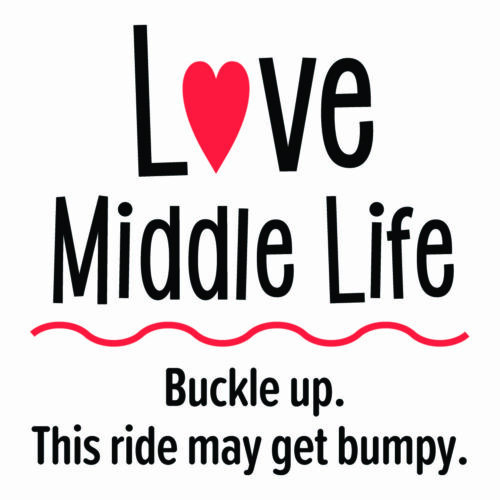Check out my podcast with guest podcaster, Donnie, from The Trevor Donald Experience where we talk about the topic of life & death…
This blog explores these topics, particularly in light of losing an adult child or a parent too soon…
Life’s journey is a profound and complex experience that takes us through various phases, challenges, and contemplations. As we move into our 50s and beyond, the questions surrounding life’s purpose and the inevitable reality of mortality become even more prominent. Regardless of individual beliefs and religious affiliations, this stage of life offers a unique opportunity to delve into these existential questions with depth and introspection.
Embracing the Journey of Self-Discovery
Reaching middle age can often lead us to question the path we’ve taken thus far and what lies ahead. This is an opportune moment to engage in self-discovery, allowing us to reflect on our accomplishments, lessons learned, and the legacy we want to leave behind. The process of self-discovery is a deeply personal one, inviting us to uncover our passions, values, and innermost desires.
The Quest for Meaning
As the years progress, the search for meaning becomes more compelling. It’s essential to recognize that the pursuit of meaning is not tied to a specific belief system. Regardless of one’s religious background or lack thereof, the journey to find purpose is a universal endeavor. This may involve exploring new hobbies, volunteering, rekindling old passions, or pursuing personal growth opportunities that align with individual values.
Cultivating Resilience in the Face of Mortality
Embracing mortality is an integral aspect of life’s journey, and it’s natural for questions about the end of life to arise as we age. This is a pivotal moment to cultivate resilience and acceptance, allowing us to make the most of the time we have left. Conversations about end-of-life preferences and decisions with loved ones can bring a sense of peace and preparedness.
A Tapestry of Beliefs
In a diverse world, beliefs about life’s purpose and what comes after death vary widely. Some individuals may hold religious convictions, finding solace and guidance in ancient traditions. Others might identify as spiritual but not religious, drawing from personal experiences and philosophical viewpoints. And there are those who find meaning in secular philosophies and the connections they forge with fellow human beings.
Fostering Connections and Leaving a Legacy
The years beyond 50 are a prime opportunity to strengthen relationships and build lasting connections. Cultivating meaningful relationships with family, friends, and even newer acquaintances can create a sense of fulfillment and contribute to the legacy we leave behind. Sharing our experiences, stories, and wisdom can provide guidance for generations to come.
The topic of life’s purpose and embracing mortality is complicated enough at face value.
But when you’ve experienced, like me, the death of a child too soon
(my son died of accidental fentanyl overdose at the age of 25 in October of 2020),
or the loss of a parent when you are a child , this topic can become even more complicated and confusing.
The Death of An Adult Child
The death of an adult child is a profoundly painful and complex experience for a parent. It can have a significant impact on our belief system about life and death, as well as our overall worldview. How a parent copes with such a loss and how it affects their beliefs can vary greatly depending on individual factors such as a person’s personality, cultural background, religious beliefs, and personal experiences.
Here are a few ways the death of an adult child might influence a parent’s belief system:
Challenges to Beliefs: The death of a child can raise deep questions about the fairness and meaning of life. It might challenge previously held beliefs about a higher power, destiny, or the purpose of suffering. Some parents might question why such a tragedy occurred if there is a benevolent force guiding the universe.
Reevaluation of Religious Beliefs: For parents with religious beliefs, the loss can lead to a reevaluation of their faith. Some might find solace and comfort in their religious community, rituals, and beliefs, while others might struggle with feelings of anger or betrayal by their deity. The experience could prompt parents to seek answers within their religious framework or explore different spiritual perspectives.
Search for Meaning: Parents who lose an adult child may embark on a search for meaning and understanding. They might delve into philosophical and existential questions about the purpose of life, the nature of death, and the legacy their child leaves behind. Some may find a renewed sense of purpose in advocating for causes related to their child’s life or working to prevent similar tragedies.
Impact on Personal Identity: The death of a child can fundamentally alter a parent’s sense of self and purpose. It might challenge their role as a protector and nurturer, causing them to redefine their identity and sense of worth. This process can prompt parents to reflect on their own mortality and priorities.
Grief and Coping Mechanisms: Grief can influence how parents perceive life and death. Some might struggle with feelings of guilt, anger, or even a sense of longing to join their child in death. Others might find comfort in connecting with their child’s memory and cherishing the moments they shared.
Resilience and Growth: While the loss of an adult child is devastating, some parents find ways to channel their grief into personal growth and resilience. They might advocate for awareness around the circumstances of their child’s death, support others who have experienced similar losses, or engage in creative outlets as a way to honor their child’s memory.
It’s important to remember that grief is a deeply individual experience,
and there is no one-size-fits-all response to the death of a loved one.
Some parents may experience a shift in their beliefs, while others may find strength in their existing belief system.
Whatever the case, providing support, understanding,
and space for parents to navigate their grief in their own way is essential.
The Death of a Parent as a Child
The death of a parent as a child can have a profound and lasting impact on their belief system about life and death. This experience can shape their understanding of the world, their relationships, and their own mortality. How a child’s belief system is affected depends on various factors, including their age, personality, cultural background, and the support they receive during the grieving process.
Here are some potential ways the death of a parent can influence a child’s belief system:
Understanding Mortality: The death of a parent can introduce a young child to the concept of mortality earlier than they might have otherwise encountered it. This experience could lead them to ponder the nature of life and death and ask questions about what happens after someone dies.
Questions about Fairness: Children may grapple with questions about the fairness of life, especially if their parent’s death was sudden or unexpected. They might wonder why this happened to them and why their parent had to die.
Attachment and Loss: The death of a parent can lead to complex feelings of loss and attachment. Children may struggle with feelings of abandonment or fear of losing other loved ones in their lives.
Existential Questions: Depending on their age and cognitive development, children may start to ask bigger existential questions about the purpose of life and what happens after death. These questions might not have clear answers, but they can influence their ongoing beliefs.
Impact on Religious or Spiritual Beliefs: A child’s religious or spiritual beliefs might be influenced by the loss of a parent. They may turn to their religious community or beliefs for comfort and understanding, or they might question their beliefs if they feel that their parent’s death contradicts their understanding of a higher power.
Fear of Death: The experience of losing a parent might trigger a fear of their own mortality. Children could start to worry about their own lives ending or the lives of those they care about.
Resilience and Coping Mechanisms: Some children may develop coping mechanisms or resilience as a response to the loss. They might become more introspective, seek out support from friends and family, or engage in creative outlets as a way to process their emotions.
Growth and Identity Formation: The loss of a parent can significantly shape a child’s sense of identity and growth. It might influence their values, priorities, and life goals, as well as their relationships with others.
Long-Term Impact: The experience of losing a parent at a young age can continue to affect a child’s belief system as they grow older. They might revisit their beliefs during different life stages and milestones.
It’s important to note that children’s responses to the death of a parent can vary widely,
and there is no single “normal” or “expected” way for them to react.
Providing emotional support, open communication, and access to resources like counseling
can help children navigate their beliefs and emotions in the aftermath of such a significant loss.
Books Focusing On Life’s Purpose:
“Man’s Search for Meaning” by Viktor E. Frankl
Amazon, $12
“The Power of Meaning” by Emily Esfahani Smith
Amazon, $19
Books, Websites & Blogs Embracing Mortality:
Podcast:
Love Middle Life – The Podcast
The Trevor Donald Experinece – Manifest Your Truth
Books:
“Being Mortal” by Atul Gawande
Amazon, $16
“The Denial of Death” by Ernest Becker
Amazon, $15
Websites and Blogs:
The Conversation Project
Death Cafe
The Order of the Good Death
NPR’s End-of-Life Conversations
Documentaries and Films:
“End Game” (2006)
“Into the Night: Portraits of Life and Death” (2017)
“The Tibetan Book of the Dead” (documentary) (1994)
Navigating life’s purpose and embracing mortality in your 50s and beyond is a journey of profound significance.
Regardless of individual beliefs and religious affiliations, this stage of life encourages us to
explore our inner selves, discover purpose, and come to terms with the inevitable reality of mortality.
By engaging in self-discovery, seeking meaning, cultivating resilience, and fostering connections,
we can create a meaningful and impactful existence that transcends
the boundaries of belief systems and embraces the universal human experience.

